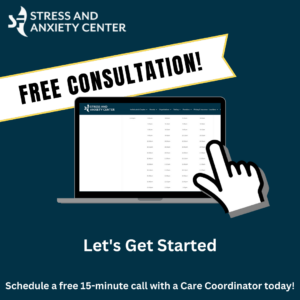Working out and eating a healthy diet are two ways we care for our physical health. However, the strategies are less defined when it comes to mental health.
Nevertheless, we understand how important it is to take care of our mental health. Studies show that most people value their physical health just as much as their mental health. Yet, more than half of people say they spend more time working on their physical health than mental health.
Therapists know first-hand how important it is to care for your mental health. They see plenty of people experience problems because they’ve neglected their mental health for years. If you don’t prioritize your mental health, you will feel the difference. Mental health should be a priority for three reasons:
- Preventing mental health problems is easier than treating them. By taking care of yourself now, you may be able to prevent mental health problems in the future. By paying close attention to your mental health, you’ll be able to intervene earlier when problems arise.
- Physical and mental health are intertwined. Poor mental health may increase your risk for physical health issues, such as diabetes, heart disease, and stroke. So even if you care more about your physical health, neglecting your mental health may backfire.
- Your mental health affects your quality of life, too. Being in good physical shape is important, but psychological wellbeing is equally important. Mental health problems can impact your social life, your ability to complete your work, and your relationships.
Here are five exercises you can do to improve your mental health:
- Plan something fun every week
In therapy, we often discuss “pleasant activity scheduling.” In essence, it means scheduling an activity that you enjoy. It could be as simple as choosing a time to watch a movie at home. Regardless of whether you live alone, schedule it on your calendar. The key is to schedule it in the future, so you have something to look forward to.
You get a second boost in your mood when you do that fun thing and a third boost after it’s over because you’ve created a positive memory. It is a good idea to schedule at least one fun activity a week.
- Practice relaxation strategies
Knowing how to relax your mind and body is essential. Passively watching TV might not cut it either. Even though you’re watching TV, your muscles might still be tense, and your mind might never completely relax. Additionally, watching TV while scrolling through social media can keep you on edge and alert.
For real stress reduction, you might want to learn yoga or meditation practices. Additionally, you can learn and practice breathing exercises and progressive muscle relaxation. Try to incorporate regular stress relief into your schedule regardless of what you do.
- Establish a gratitude practice
The benefits of experiencing and expressing gratitude are numerous. In several studies, gratitude has been shown to be directly related to your overall wellbeing. People who are grateful tend to have fewer mental health problems, higher levels of happiness, and long-term positive psychological wellbeing.
While writing a letter of gratitude to someone is one way to experience these positive effects, you don’t necessarily even need to share your grateful feelings with anyone. You can also increase your mental strength by writing in a private journal.
- Foster your relationships
A key factor in good mental health is social support. Relationships play a crucial role in your life, so it’s important to invest time in them. Spend quality time with your loved ones, whether that’s a date night with your partner or a weekly dinner with your friends.
- Perform acts of kindness
Acts of kindness shouldn’t necessarily be about your personal gain, but by doing kind things for others, you do gain a lot. Whenever you are kind to someone, your brain releases feel-good hormones, such as endorphins and oxytocin. In addition to boosting your own mood, you will also boost the mood of the person you are giving to.
Each day, choose a different person to show kindness to and perform one act of kindness. Or, you might volunteer once a week with a specific organization.
Incorporating mental strength strategies into your daily routine
Identify strategies for building mental strength that you enjoy. This will increase your chances of sticking to them. Don’t force yourself to meditate if you hate it. Instead, look for another exercise you might like better. There’s plenty to choose from, and investing more time in your mental health is key to reaching your greatest potential.
How Therapy Can Benefit Your Mental Health
About 75% of people receiving therapy experience symptom relief and are able to function more effectively. Other benefits include:
- Better daily habits to support a healthy lifestyle
- Fewer negative thoughts
- Greater focus and more satisfaction at work
- Higher self-esteem
- Stronger relationships with others
Ultimately, you’ll learn not only how to solve the problem that brought you into treatment but you’ll also gain new skills to help you cope with whatever challenges arise in the future. Contact us today to discuss how we can help.


